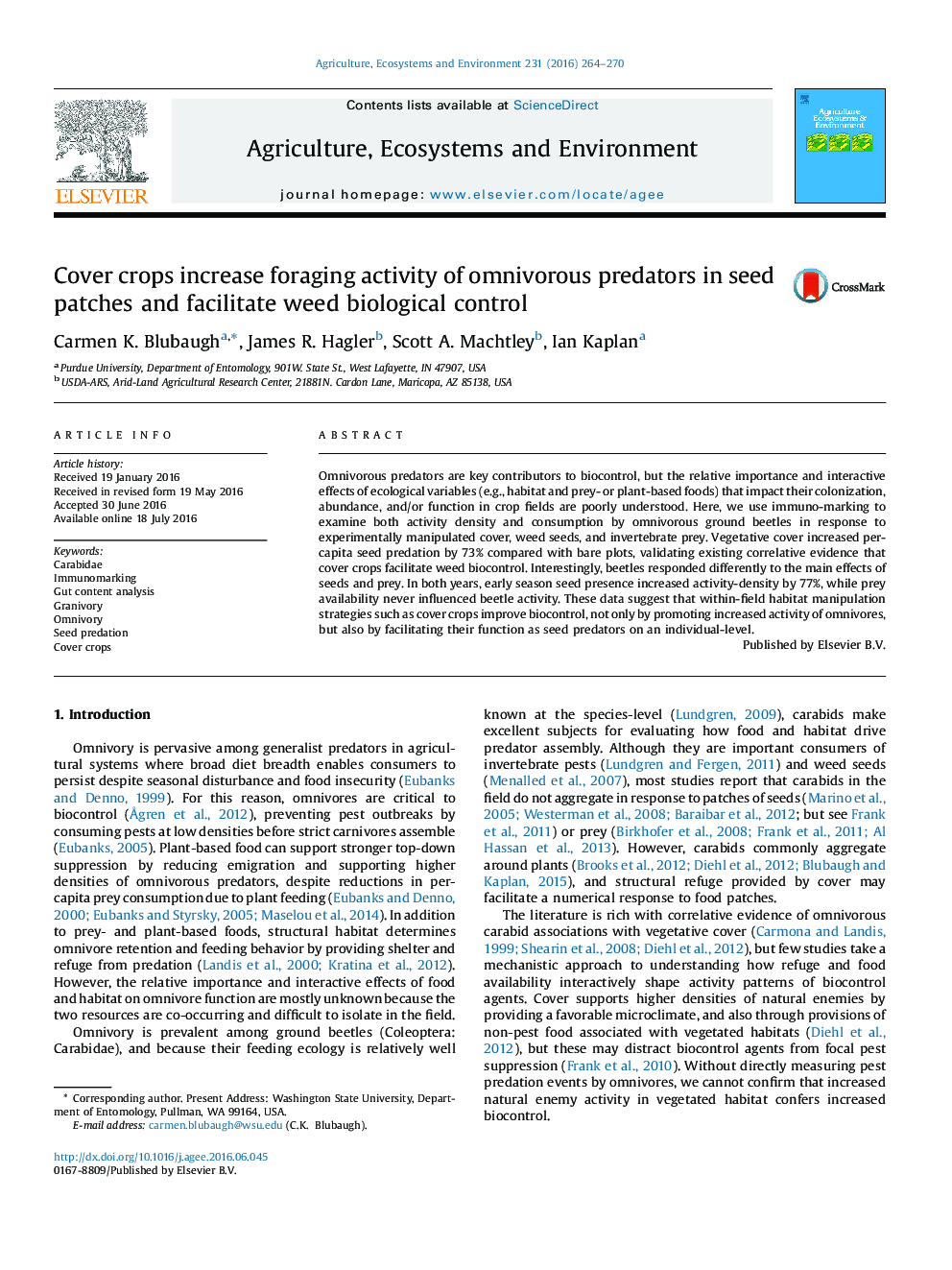| Article ID | Journal | Published Year | Pages | File Type |
|---|---|---|---|---|
| 8487362 | Agriculture, Ecosystems & Environment | 2016 | 7 Pages |
Abstract
Omnivorous predators are key contributors to biocontrol, but the relative importance and interactive effects of ecological variables (e.g., habitat and prey- or plant-based foods) that impact their colonization, abundance, and/or function in crop fields are poorly understood. Here, we use immuno-marking to examine both activity density and consumption by omnivorous ground beetles in response to experimentally manipulated cover, weed seeds, and invertebrate prey. Vegetative cover increased per-capita seed predation by 73% compared with bare plots, validating existing correlative evidence that cover crops facilitate weed biocontrol. Interestingly, beetles responded differently to the main effects of seeds and prey. In both years, early season seed presence increased activity-density by 77%, while prey availability never influenced beetle activity. These data suggest that within-field habitat manipulation strategies such as cover crops improve biocontrol, not only by promoting increased activity of omnivores, but also by facilitating their function as seed predators on an individual-level.
Related Topics
Life Sciences
Agricultural and Biological Sciences
Agronomy and Crop Science
Authors
Carmen K. Blubaugh, James R. Hagler, Scott A. Machtley, Ian Kaplan,
